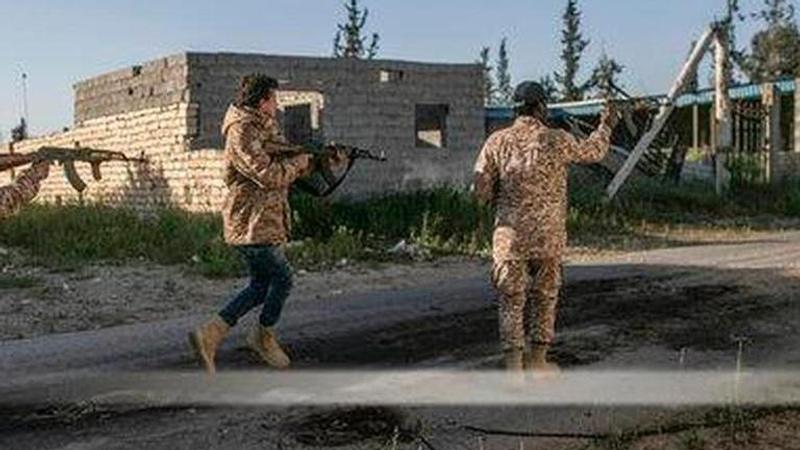Published 18:52 IST, April 25th 2020
Europe calls for humanitarian truce in Libya amid COVID-19 crisis
Days after United Nations Secretary-General Antonio Guterres called for peace in Libya, the international leaders have called for a humanitarian truce.

Days after United Nations Secretary-General Antonio Guterres called for peace in Libya, the foreign ministers of Germany, France and Italy along with a top diplomat from the European Union have made a joint call for a humanitarian truce in the war-torn African nation. In 2014, a civil war ensued between the Libyan National Army led by Marshal Khalifa Haftar and Tripoli’s Government of National Accord, led by Fayez al-Sarraj for control of resources and territory. According to reports, the statement signed by Joseph Borrell, Jean-Yves Le Drian, Luigi di Maio and Heiko Maas called on Libyan actors to get “inspired from holy Ramadan” and engage in resuming talks for a genuine ceasefire.
“We want to unite our voices to those of the U.N. Secretary-General (Antonio) Guterres and his Acting Special Representative for Libya, Stephanie Turco Williams, in their call for a humanitarian truce in Libya,” the statement said.
Last month, Stéphane Dujarric, the spokesperson for the Secretary-General, said that the Secretary-General calls on the parties to accept the draft ceasefire agreement emanating from the 5+5 Joint Military Commission talks facilitated by the United Nations in Geneva in February. Guterres hoped positive response to the calls for a humanitarian pause to stop the fighting will be translated into an immediate and unconditional cessation of hostilities.
Political and humanitarian crisis
Libya has been facing a political and humanitarian crisis after the self-styled Libyan National Army, headed by Khalifa Haftar, launched a battle against the Tripoli’s UN-recognised government. Thousands of Tripoli residents have been displaced due to the shelling that started earlier this year targeting the outskirts of the Libyan capital.
Both parties came to a truce agreement on January 12 which marked reduction of hostilities in Tripoli, providing a much-needed respite to civilians. However, Turkish President Recep Tayyip Erdogan said that Haftar was continuing attacks ‘with all his resources’ even after the ceasefire agreement. The pressure on bringing both the parties together has been so much that earlier this month, United Nations’ Special Representative to Libya Ghassan Salamé stepped down from the responsibility citing immense “stress” due to the nature of the job.
(Image credits: AP)
(With inputs from agencies)
Updated 18:52 IST, April 25th 2020




